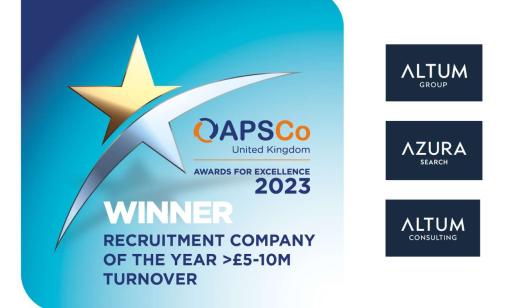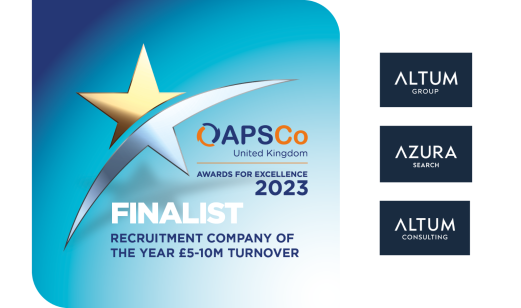
Attracting and Retaining Staff During a Recession
What does the current recruitment market look like? And how can your charity attract and retain the best talent?
With inflation continuing to rise and the UK entering what looks like an extended recession, these are challenging times for all of us.
Charity funds are already tight and income is not expected to rise in line with inflation – and for many may fall as donations decrease – thus the effects of the current economic climate are being felt across the sector, not least within the area of staff recruitment and retention.
As recruiters specialising in finance within the sector, we regularly see first-hand how staffing is being affected by the cost of living crisis. Earning potential is often not the driving consideration for an individual who has chosen to work for a charitable organisation. However, competition between organisations on salary has become more marked recently.
With rising costs and a high number of job vacancies, organisations are often having to revise salary brackets when recruiting to secure the required talent and on average, candidates we have placed over the past six months have secured an 8.4% increase in salary on their previous position.
When flexibility on salary is impossible, organisations are having to rethink the minimum level experience required for a role. Both salary increases and hiring for potential can come with challenges, however.
Offering a higher salary, out of sync with other internal salaries can upset salary structures and existing staff, while having to compromise on experience can leave a team even more stretched as more time is needed to upskill a new recruit.
As ever, charities are finding creative ways to work with what they have.
One Diocese we worked with gave an inflationary pay rise of 5% on average which was put into a pot, with the central leadership team agreeing to forgo any pay rise, and the ringfenced funds weighted towards giving higher pay rises to the lower earners who will be feeling the crunch more than anyone.
Notwithstanding the fact that inflation looks to continue at high levels for the foreseeable future, some organisations have elected to give one-off cost of living bonuses, while others have increased the frequency of inflationary pay reviews (eg every six months rather than 12) to avoid over-committing on salary rises in an uncertain climate.
There are other non-financial ways of helping employees through these difficult times, which in turn improve prospects of recruiting and/or retaining staff.
Two national charities we work with have gone ‘office-free’, meaning staff are saving thousands per annum on commuting costs, and enabling the businesses to invest those funds to provide salary increases further down the line.
This is a dramatic approach and not one that will work for all but renting a floor and encouraging hot-desking and flexible working is a popular alternative solution.
To ensure employees still feel connected with their colleagues both organisations hold quarterly all-staff conferences, with a big focus on the social element. These organisations and others that we work with also offer small home-working allowances and while this is a cost, it’s a drop in the ocean compared to the savings made when you remove Central-London office rent from your P&L.
Being flexible with working hours can go a long way as well, contributing to work-life balance whilst allowing parents to avoid paying more for childminders or nursery costs after the 6pm pickup.
Avoid competing for talent unnecessarily
To avoid spending money and time that few have in the current market, especially given how candidate-short this is currently, organisations should first and foremost prioritise staff retention.
This can be helped by:
- regularly benchmarking salaries against the wider market;
- offering as much flexibility on hours and remote working as can realistically be offered without affecting team performance;
- taking steps to ensure staff feel connected to their colleagues and the charity’s goals and values;
- investing time in the career development of staff.
If you have to recruit externally (and there are many positives from moderate turnover), ensuring any salary benchmarking is up-to-date and recruiting for potential can be the best route to work with increasingly limited resources.
Robbie has recruited finance professionals in the charity sector for the past decade and oversees a team of specialists in this field. Contact Robbie at 020 3800 1434 or robert.anderson@altumconsulting.co.uk for advice on your recruitment processes and assistance with any vacancies.










